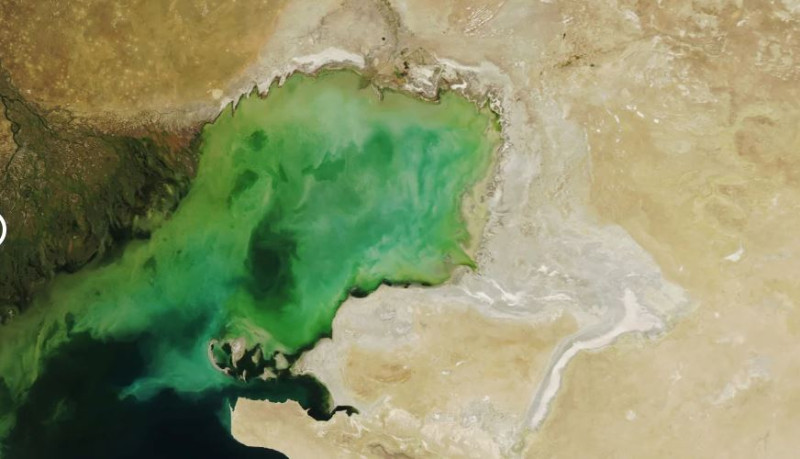Dams, over-mining, pollution and, increasingly, the climate crisis have caused enormous damage to the lake
OR Caspian Sea the planet’s largest inland sea and its largest lake containing a huge volume of water has been shrinking dangerously in recent years with experts expressing concern that the situation is irreversible.
Dams, over-mining, pollution and, increasingly, the human-caused climate crisis have wreaked havoc on the lake, according to CNN.
While climate change is raising global sea levels, lakes like the Caspian are not. The nearby Aral Sea, between Kazakhstan and Uzbekistan, was once one of the world’s largest lakes, but has all but disappeared, due to both the climate crisis and human activity.
The Caspian is fed by 130 rivers, although about 80% of its water comes from just one: the Volga, Europe’s largest river, which runs through central and southern Russia.
Russia has built 40 dams, with another 18 under development, according to Vali Kaleji, an expert in Central Asian and Caucasian Studies at the University of Tehran. However, climate change is playing an increasingly important role, increasing evaporation rates and fueling more erratic rainfall.
The water level of the Caspian Sea has been falling since the mid-1990s, but has accelerated since 2005, falling by about 1.5 meters, said Matthias Prange, an Earth systems modeler at the University of Bremen in Germany. As the world warms further, levels are set to “drop drastically,” he told CNN. His research predicts reductions of 8 to 18 meters by the end of the century, depending on how quickly the world cuts pollution from fossil fuels.
Another study predicts a drop of up to 30 meters in water levels by 2100. Even under the most optimistic global warming scenarios, the shallower, northern part of the Caspian Sea, mainly around Kazakhstan, is set to disappear entirely, Joy said. Singarayer professor of paleoclimatology at the University of Reading and co-author of the study.
For the countries of the Caspian Sea, this is a crisis. Fishing grounds will shrink, tourism will decline and the shipping industry will suffer as ships struggle to dock in shallow ports like Aktau, said Tehran University’s Kaleji.
The growing concern over the fate of the Caspian comes at a time of heightened scrutiny in the region.
Next month, world leaders will gather in Azerbaijan’s coastal capital Baku for COP29, the United Nations’ annual climate summit, where they will discuss climate action in the shadow of the oil rigs that dot this part of the Caspian Sea.
Source: Skai
I have worked as a journalist for over 10 years, and my work has been featured on many different news websites. I am also an author, and my work has been published in several books. I specialize in opinion writing, and I often write about current events and controversial topics. I am a very well-rounded writer, and I have a lot of experience in different areas of journalism. I am a very hard worker, and I am always willing to put in the extra effort to get the job done.











